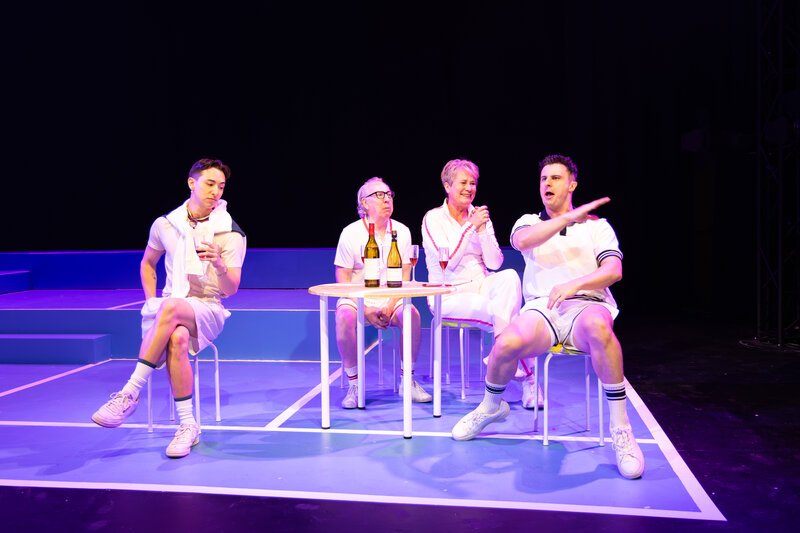In The Saturday Paper, author Charlotte Wood describes her latest novel, The Natural Way of Things, as a “sledgehammer”.
“I like things that are subtle and elegant, but I’ve written a sledgehammer.” (The Saturday Paper, October 24, 2015)
 I can’t think of a better way to describe this novel. Reading Wood’s book was a visceral experience, creating tension in my body as I experienced emotions one after the other: anger, frustration, helplessness, horror, and deep sadness. It really did feel like I’d been hit with a sledgehammer. You might wonder why I read it, since it affected me so much. Once I started, I had to finish, much in the same way Woods said she had to write the book, despite many times feeling as though she couldn’t do it. Her friends said it was an “important book to be written.” It’s also an important book to be read.
I can’t think of a better way to describe this novel. Reading Wood’s book was a visceral experience, creating tension in my body as I experienced emotions one after the other: anger, frustration, helplessness, horror, and deep sadness. It really did feel like I’d been hit with a sledgehammer. You might wonder why I read it, since it affected me so much. Once I started, I had to finish, much in the same way Woods said she had to write the book, despite many times feeling as though she couldn’t do it. Her friends said it was an “important book to be written.” It’s also an important book to be read.
The Natural Way of Things centres on a group of women who find themselves imprisoned in a rundown, remote property surrounded by an electric fence. Two men are their gaolers; a woman is later introduced as a ‘nurse’. The women are treated brutally; they are forced to wear strange, ‘Amish’ uniforms, their heads are shaved and they are talked to as if they are the lowest beings on earth. They are “the minister’s-little-travel-tramp and that’Skype-slut and the yuck-ugly-dog from the cruise ship; they are pig-on-a-spit and big-red-box, moll-number-twelve and bogan-gold-digger-gangbang-slut” (p47). All of them have in common a sexual scandal with a powerful man … and the fact that they are female. Underlying their callous, often vicious treatment, is the threat of rape – the only thing stopping the men is a contract they have apparently signed with the unknown entity behind the abductions.
Told from the alternating viewpoints of Verla and Yolanda, the story makes for horrifying reading as the women reflect on their situation, and work through various coping strategies including denial anger, bargaining and acceptance. When the electricity goes off (with the exception of the fence) and food supplies run low, the situation alters – the gaolers are now among the gaoled. The balance of power has shifted. Examples of sisterly love and courage emerge as the women work together to survive. But even with this element of hope, this ray of light, the overall novel is stark, gut-punching stuff.
Wood says this is the hardest book she’s ever written. For me, it was one of the hardest I’ve ever read. I don’t think a book has ever prompted such a visceral response in me before – I couldn’t put it down, and then the day after, I was withdrawn and unsettled. Talking about it made me angry – not because of the overall book, which is brilliant, but because of the way women are, and continue to be treated. Woods was inspired by reports like:
…the Hay Institution, where girls were locked up in the ’60s and ’70s, drugged, raped and forced to march while undertaking hard labour; Dianne Brimble, dying of a drug overdose after being preyed upon by eight men; the scapegoating of a David Jones employee after she complained of being sexually harassed by the chief executive; the woman sexually assaulted while asleep, and the ensuing degrading remarks from her professor about the case. (The Saturday Paper, October 24, 2015)
Show me a woman who wouldn’t be angry about that.
Simply put, The Natural Way of Things is a stunning example of literature, allegory and talent. Read it … but make sure you’re in a strong frame of mind. You will be challenged. I will add that this book won’t suit everyone and it has had mixed reviews – not everyone can get through it. It’s not the kind of book you read to “like” or “enjoy” – it’s one you read to make you think. The trailer below is compelling – have a look and if you think the book is for you, then add it to your to-read list. Charlotte, despite what you went through, thank you for writing this.
Available from good bookstores. My copy was courtesy of Allen & Unwin.
Author: Charlotte Wood
Allen & Unwin
RRP $29.99
Monique Mulligan
For more of Monique Mulligan’s writing on books, check out Write Note Reviews

David Edwards is the former editor of The Blurb and a contributor on film and television




